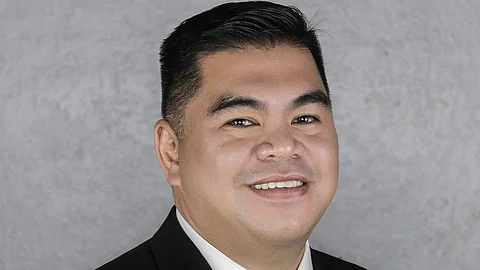
- NEWS
- the EDIT
- COMMENTARY
- BUSINESS
- LIFE
- SHOW
- ACTION
- GLOBAL GOALS
- SNAPS
- DYARYO TIRADA
- MORE

Despite the cold treatment of the Senate on Resolution of Both Houses 6, a House leader on Thursday expressed optimism that the chamber will eventually give the thumbs up on the contentious measure.
House Deputy Majority Leader Jude Acidre said he is in "full trust" that Senate President Juan Miguel Zubiri will induce his peers in favor of RBH 6, notwithstanding their fierce objection, taking into account that he is the proponent of the bill.
Zubiri authored RBH 6 with Senate President Pro Tempore Loren Legarda and Senator Juan Edgardo Angara, the chairperson of a sub-committee tackling the RBH 6.
"For the RBH 7, as far as the House is concerned, we already fulfilled our mandate. Now we're looking [at] our friends in the upper house to what they will do because, as they insist, Congress is a bicameral body, and the action of the House has to be reciprocated by the Senate," Acidre told the media.
"Knowing that, as the [RBH 6] states, this is something that will be good in the country. That's what they wrote in their counterpart resolution in the whereas clause," he added.
The House's separate economic Cha-cha bill, the RBH 7, had already hurled the third and final reading during Congress' last session day on Wednesday before it goes into a month-long Holy Week break.
RBH 7 mustered 289 affirmative votes, seven negative votes, and two abstentions.
While the House and Senate, which have been locked in a verbal duel over the past months about Cha-cha, have now reached a "consensus" to amend only the economic provisions of the 1987 Constitution, Acidre averred that RBH 6 must be passed before the sine die adjournment in May to insulate it from political innuendo.
"The instructions of the Speaker, the guidance of the Speaker, is to give as much time as the Senate requires in support of the President. However, we have to understand [that] there is a limited timeframe to do this," Acidre said.
"We can't call it we imposed [deadline] in the Senate, but this is the reasonable timeframe for them. So, if the Senate means what they said, then they will have to pass it before sine die because that's the timeframe that makes it logical and makes it feasible to have the plebiscite done either before or however it goes the 2025 elections," he continued.
Previously, Zubiri committed to passing RBH 6 before Holy Week break but eventually changed his tune, stressing they would not succumb to deadline pressure, citing further study needed on the measure.
The Senate, dominated by Cha-cha opponents, is one with Marcos to synchronize the Cha-cha plebiscite with the 2025 local and congressional elections as it would be cost-effective.
Members of the House, however, have been calling for an earlier plebiscite in fear that politicians vying for a spot may take advantage of the calls for Cha-cha.
"As many of us actually know, the elections are coming, and we already cited that the most favorable time for this to be passed before Congress adjourned sine die," Acidre said.
RBH 7 is a replica of the Senate's RBH 6, with the only distinction being the voting manner.
Both measures aim to eliminate the restrictions on foreign ownership in public utilities, educational facilities, and the advertising industry, covered under Articles 12, 14, and 16, respectively, which are said to hamper the Philippines' economic potential.
